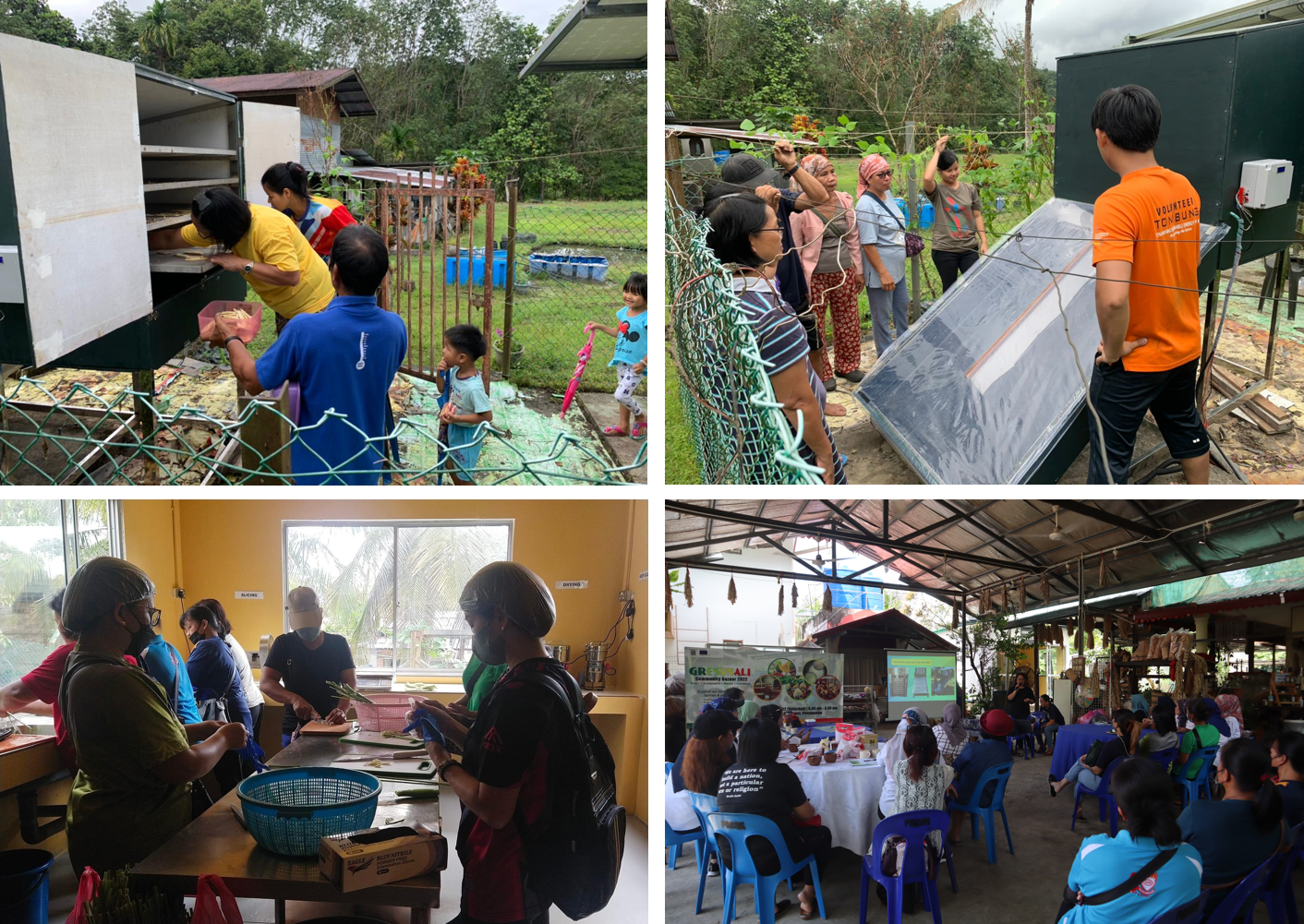Tackling women empowerment and inequality through rural e-commerce development and digitalisation
December 14, 2022
At the height of the pandemic in 2020, the United Nations Development Programme (UNDP) Malaysia, Singapore and Brunei Darussalam, together with the United Nations Capital Development Fund (UNCDF) ventured into East Malaysia to pilot an e-commerce ecosystem for rural producers and artisans in Pagalungan and Moyog, Sabah. It aimed to support business continuity during the Movement Control Order while improving the longer-term financial health of rural communities by widening access to markets. Understanding gender dynamics and addressing gender inequalities while improving overall outcomes was also sought.
Residents in rural Sabah face infrastructural barriers such as poor road access, costly delivery services, lack of food processing knowledge and equipment, and limited warehousing and storage facilities. Consequently, e-commerce for rural producers is often considered a risky or even unviable investment for industry players. Coupled with digital and technological challenges such as internet connectivity, technophobia, and limited digital literacy, e-commerce growth in rural areas has been slow.
However, UNDP’s rural e-Commerce project in Moyog and Pagalungan over the last two years demonstrated the feasibility of rural e-commerce with alternative value chains, serving as an alternative to the informal economy. From a humble homegrown e-commerce store launched on 18 December 2020, Koondos! , it has scaled to include renewable energy interventions in supply chain, supported by partners such as Malaysia Global Innovation and Creativity Centre (MaGIC) in 2021, TONIBUNG and Japan Innovation Network in 2022. The project has successfully trained 300 women entrepreneurs and producers on product innovation, entrepreneurship, digital business and sustainable enterprise models in collaboration with Moyog Innovation House (MIH). These women have often ventured into entrepreneurial endeavours to supplement household incomes. From an average revenue of USD137 per month, MIH now earns USD989 per month.

Figure 1: Some of the goods sold in Koondos! And the Koondos! Platform for e-market.Koondos is the Kadazan word for ‘happy’.

Figure 2: Food processing and Solar Dryer training with local communities made up of 90% women participants.
Working with gender roles and overcoming barriers
Focus group discussion and gender analysis was conducted in the project to better understanding what women want and what they can contribute as 90% of our project beneficiaries are women. Traditional gender roles are evident among the rural communities in Moyog, Sabah and present significant barriers preventing women from venturing into entrepreneurship. The women often take up jobs that are compatible with childcare and do not require capital, such as selling raw produce in local markets, cooking and cleaning. In 2017, the female labour force participation rate for Sabah was only 50.1 % compared to 84.8% for male[1]. Additionally, women often cannot meet microfinancing requirements and require financial capital from their husbands to start a business. This project helped overcome these barriers by providing women with seed funding and basic know-how on food processing and experiment with a business online. The project also connected them with alternative value chain suppliers to enable a conducive ecosystem for digital business in rural area, including social enterprises acting as aggregators and logistics provider.
Gender equality for greater impact
Following a successful first phase of the rural e-commerce pilot and renewable energy projects in Moyog and Pagalungan, UNDP aims to scale similar models to other rural communities in Malaysia for sustainable enterprise in strengthening community resilience. In doing so, we create an opportunity to engage women equitably in technology appropriation, governance, and innovation in their communities.
Empowering women as producers and entrepreneurs enables them to safeguard the environment and natural resources while supporting sustainable growth for rural development. For example, since the successful prototyping of a solar dryer, women are processing agricultural produce into higher-value products with longer shelf life. This reduces wastage, improves income and enhances food security in these communities.
The role that women entrepreneurs play as intermediaries between farmers and markets and in increasing product value benefits men as well. Women’s entrepreneurship endeavours have sparked motivation among the largely male farmers to diversify their crops to better respond to market demand, increasing opportunities for income generation for the community. UNDP’s effort in advancing women’s economic empowerment through the rural e-commerce initiative, is hoped to generate spill-over effects in other development areas of in terms of connectivity, civic participation, health and education. This would pave the way forward for subsequent programming to drive gender equality and empowerment as one of the priorities in the new country programme cycle.
References:
[1] https://knoema.com/atlas/Malaysia/Sabah/Female-labour-force-participation-rate
If you wish to know more about this project, check out other sources below:
- E-Commerce for Rural Development Blog- Part 1: https://www.undp.org/malaysia/blog/e-commerce-rural-development-response-covid-19-recovery
- E-Commerce for Rural Development Blog- Part 2: https://www.undp.org/malaysia/blog/e-commerce-rural-development-response-covid-19-recovery-part-2
- E-Commerce for Rural Development Blog- Part 3: https://www.undp.org/malaysia/blog/e-commerce-rural-development-greening-production-part-3
Documentaries and testimonies:
Video 1: From Farm to E-Markets: Building Financial Health in Sabah – Moyog Documentary: https://www.youtube.com/watch?v=qacWlOyp8cw&list=UU4nEGUzimT7EO-DGAEtLtJw&index=13
Video 2: From Farm to E-Markets: Building Financial Health in Sabah – Pagalungan Documentary: https://www.youtube.com/watch?v=Na32TF7aUi0&t=2s

 Locations
Locations